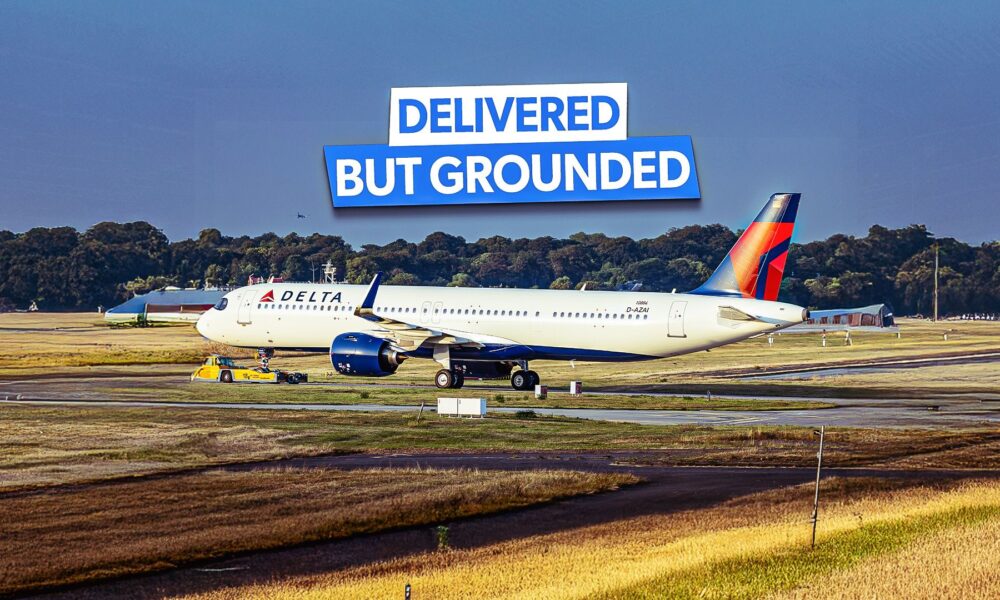Delta Air Lines is set to introduce a new subfleet of Airbus A321neos featuring an unprecedented **44 first-class seats**, significantly increasing its premium capacity. This move diverges from the airline’s current configuration, which typically includes **20 first-class seats**. The new arrangement aims to address operational challenges while catering to high-demand routes, particularly transcontinental flights.
While Delta currently operates **79 Airbus A321neos** and has **71 more on order**, the introduction of the new subfleet will mark a notable shift in its service offerings. This configuration is designed specifically for increased premium demand, which is critical in today’s competitive airline industry.
Overview of the Delta A321neo Fleet
Delta Air Lines currently boasts a total of **155 Airbus A321neos**, including **five** units that have been in storage since delivery. The standard configuration for the majority of these aircraft includes **194 seats**, comprising **20 Delta First seats**, **60 Delta Comfort seats**, and **114 Delta Main seats**. This setup aligns with configurations used by other major U.S. carriers like American Airlines and United Airlines.
The A321neo is equipped with the **Pratt & Whitney PW1100G** engines and features modern design enhancements, including sharklets and updated interiors. Delta’s A321neos serve as a vital component of its domestic fleet, replacing older Boeing 757-200 and A320-200 models as it seeks to modernize its operations.
Motivation Behind the New Configuration
The decision to create a new subfleet with **44 first-class seats** stems from ongoing certification challenges with the new **DeltaOne suites**. Instead of allowing the aircraft to remain idle and incur storage costs, Delta plans to install **32 additional Premium Select seats**, marketed as Delta First, to maximize revenue potential during this period.
According to data from **aeroLOPA**, the new configuration will include **16 DeltaOne suites**, **12 Premium Select seats**, **54 Delta Comfort seats**, and **66 Delta Main seats**, resulting in a total of **148 seats**. While this layout is unconventional, it reflects Delta’s adaptability in the face of current challenges.
The need for such a configuration highlights the growing emphasis on premium offerings within the airline sector. With the new layout, Delta aims to maintain competitive pricing for its premium seats while providing ample upgrade opportunities for passengers.
The **five A321neos** that have already been delivered will receive this new configuration, with two additional aircraft expected to follow suit. This pragmatic approach allows Delta to utilize aircraft that would otherwise remain grounded, thus optimizing revenue.
The long-term viability of the **44F subfleet** will depend on demand. If the market supports the increased premium capacity, Delta may consider maintaining this configuration even after certification issues are resolved. Future plans may involve retrofitting these aircraft with DeltaOne suites once they receive the necessary certification, enabling Delta to offer an expanded range of premium services.
In an environment where certification delays are common, Delta’s proactive strategy of extending its Premium Select cabin while awaiting certification illustrates the challenges faced by airlines globally. Other carriers, including **American Airlines** and **Lufthansa**, have also experienced setbacks in bringing new cabin designs to market.
As Delta moves forward with its new A321neo fleet, passengers can expect increased opportunities for upgrades and enhanced service on high-demand routes like **Atlanta to Los Angeles** and **Atlanta to New York City**. Ultimately, this strategic shift aims to transform challenges into opportunities, allowing Delta to bolster its position in the competitive airline landscape.






